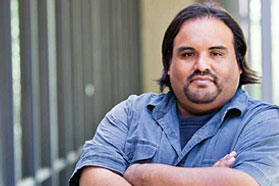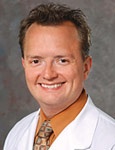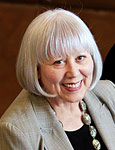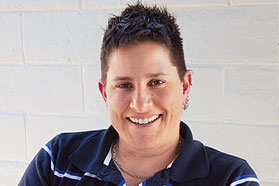LGBT task force finds disparities in cancer screening and care
 Manjarrez and other members of the newly formed UC Davis Comprehensive Cancer Center’s LGBT cancer health task force are hoping to induce productive changes, as they search for the reasons behind the disparities in health care and cancer screenings among the LGBT community.
Manjarrez and other members of the newly formed UC Davis Comprehensive Cancer Center’s LGBT cancer health task force are hoping to induce productive changes, as they search for the reasons behind the disparities in health care and cancer screenings among the LGBT community.
"The doctor was completely homophobic and made extremely rude remarks while examining me," says Manjarrez, an education and prevention manager at Breaking Barriers, a community services program in Sacramento for people with HIV and other serious illnesses.
Fortunately, Manjarrez found another doctor and continued to get annual checkups. But many members of the lesbian, gay, bisexual and transgender (LGBT) community stop seeking health care altogether because they either experience or fear bias of medical providers. Studies have shown that members of the LGBT community experience higher rates of cancer, partly because they don’t receive cancer screenings as frequently as their heterosexual counterparts.
Manjarrez and other members of the newly formed UC Davis Comprehensive Cancer Center’s LGBT cancer health task force are hoping to induce productive changes, beginning with the results of an online survey to determine the reasons behind the disparities in health care and cancer screenings.

"For me, it’s an issue of addressing social justice and health disparities. This is an area where we can do some good, rectify past wrongs, and improve access for groups who have not always had access to sensitive and appropriate health care."
Initial findings from the survey, marketed to local LGBT organizations and media, indicate that a majority of the LGBT prefers their sexual orientation and gender identity to be included in their medical records. However, the survey found that only one-fourth rated their health-care provider as "excellent" in relating to them in terms of their sexual orientation; even fewer — 17 percent – rated their provider as "excellent" in terms of gender identity.
The survey also found lower-than-average cancer screening rates among respondents. For example, only 32 percent of female respondents had their recommended mammograms, and only 19 percent of male respondents reported having a recommended PSA test for prostate cancer. Nearly half of respondents (43 percent) said their providers did not talk with them about their risks of cancer or how to reduce them.
"There is a general lack of knowledge regarding LGBT medical needs and concerns, and cancer risks seem to be minimized due to the high attention paid to HIV/AIDS, depression and substance abuse," one respondent commented. "Doctors need to do a better job educating us on cancer risks and screening."
Researchers attribute the higher cancer rates both to lifestyle factors and lower screening rates. For example, lesbians have higher rates of breast cancer than heterosexual women, partly because they are less likely to experience childbirth and breast feeding – both of which decrease risk for breast cancer. Gay men have higher rates of anal and prostate cancers than their heterosexual counterparts.

"LGBT folks tend to avoid screening for cancer largely because they have a mistrust of and bad feeling about seeing health-care providers."
"Across the board, LGBT people tend to have a higher prevalence of many health problems compared to the general population," says Alan Shindel, a urologist and assistant professor of urology at the UC Davis School of Medicine.
Shindel, a task force member, cites economics as a possible reason as members of the LGBT community usually have lower rates of insurance coverage. Fear of health-care provider bias is another reason. "Fear of disclosing their sexual orientation can hinder their access to care," he says.
Margie Wells, 43, once feared seeing a physician because she anticipated bias. A flu-like illness finally drove the then-24-year-old to seek medical attention at an urgent care clinic. She told the physician that she could not be pregnant, but he nevertheless insisted that she get a pregnancy test. An ultrasound test ultimately revealed an ovarian endometrioma that had grown out of control and required surgery. Later, at 36, Wells found a lump in her breast that turned out to be cancer. She underwent a bilateral mastectomy.
 "If someone stays away (from seeing a physician) the risk is increased. If you are sick and you ignore it because you don’t have a medical professional to trust, that is a death waiting to happen."
"If someone stays away (from seeing a physician) the risk is increased. If you are sick and you ignore it because you don’t have a medical professional to trust, that is a death waiting to happen."
"If someone stays away (from seeing a physician) the risk is increased," says Wells. "If you are sick and you ignore it because you don’t have a medical professional to trust, that is a death waiting to happen."
The LGBT cancer health task force’s survey results will be used to strengthen the delivery of health care to the LGBT population locally through outreach and education, says Marlene von Friederichs-Fitzwater, founder and chair of the task force and director of the UC Davis Comprehensive Cancer Center’s outreach research and education program.
"While the sample size was small, with 119 respondents, the survey results show trends that call for increased cancer awareness and cancer screening in this population," von Friederichs-Fitzwater says, adding that the task force also plans to apply for a National Institutes of Health grant to develop ways to respond to the disparities.
Health-care providers, too, need to be educated about culturally sensitive and thorough care for members of the LGBT community.
For example, Manjarrez says, doctors who treat transsexual men who were born biologically female need to know that their patients still need pap smears, and that transsexual women who were born biologically male still need prostate cancer checks.
"For me, it’s an issue of addressing social justice and health disparities," says Shindel of his work on the task force. "This is an area where we can do some good, rectify past wrongs and improve access for groups who have not always had access to sensitive and appropriate health care."







